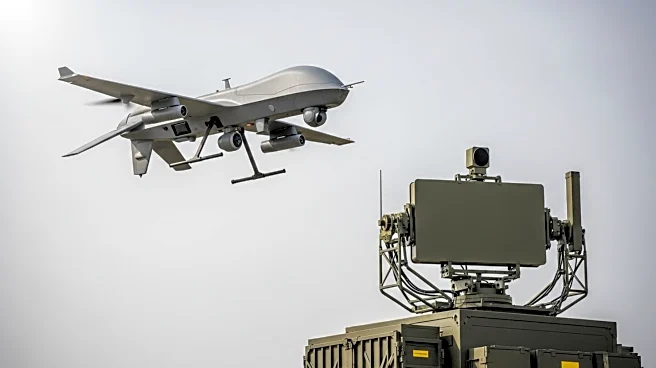What's Happening?
Germany is undergoing a significant transformation in its defense posture, marked by increased spending and procurement reforms. The country has raised its defense budget to 2.15% of GDP, with plans to reach 3.5% by 2029. This shift is driven by geopolitical factors, including Russia's invasion of Ukraine and President Trump's stance on U.S. security guarantees to Europe. Germany's defense spending has surged, with a focus on procurement, which now accounts for 37% of the budget. The country is reforming procurement procedures to streamline processes and enhance defense capabilities. Germany aims to reduce reliance on foreign suppliers by strengthening its domestic defense industry, while also collaborating in areas where it lacks expertise.
Why It's Important?
Germany's defense strategy shift has significant implications for European security and defense industries. By increasing its defense budget and reforming procurement processes, Germany is positioning itself as a leading force in NATO and European defense autonomy. This move could lead to increased collaboration among European countries and reduce dependence on U.S. security guarantees. The focus on domestic procurement supports Germany's industrial base, potentially boosting economic growth and job creation. However, the reliance on imports for certain sectors highlights challenges in achieving complete defense autonomy. The reforms may also impact global defense markets, as Germany seeks to balance domestic production with strategic imports.
What's Next?
Germany's defense strategy will continue to evolve, with further increases in defense spending and procurement reforms expected. The country plans to implement the Bundeswehr Planning and Procurement Acceleration Act in early 2026, which will streamline contract awards and expand the definition of national security interests. Germany's commitment to spending 5% of GDP on defense by 2035 could influence other NATO members to follow suit. The focus on domestic procurement may lead to increased investment in Germany's defense industry, while collaboration with other countries could enhance European defense capabilities. The geopolitical landscape will likely shape Germany's defense priorities and partnerships.









